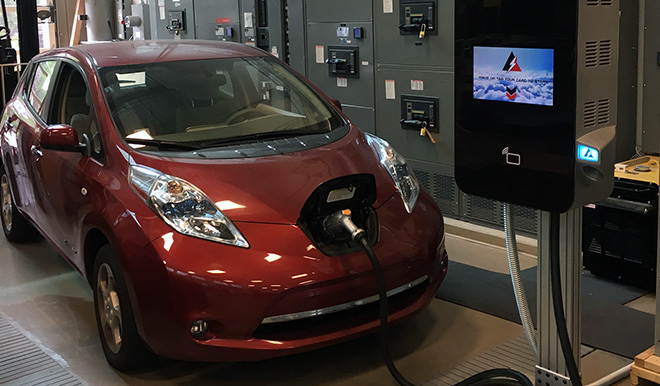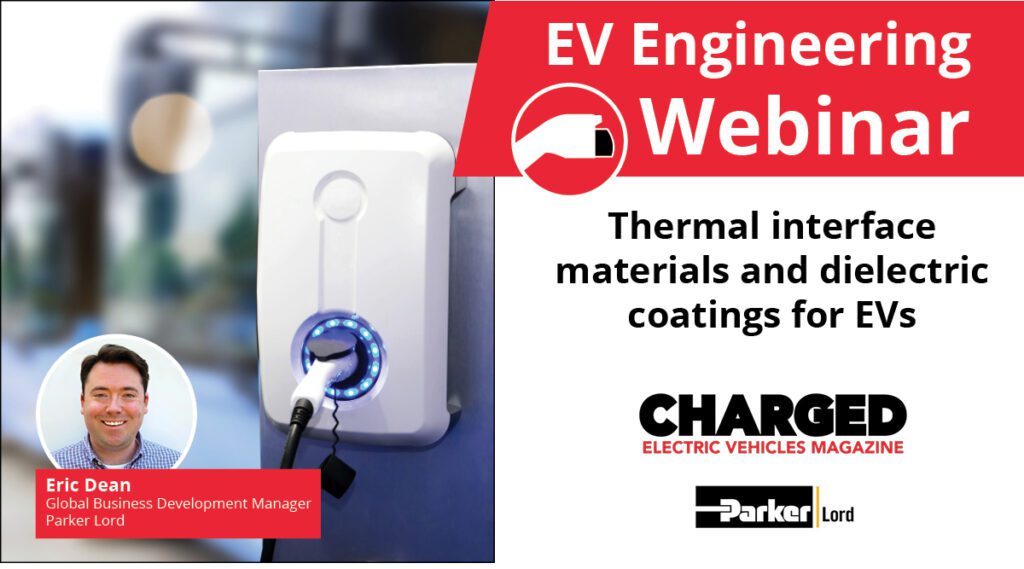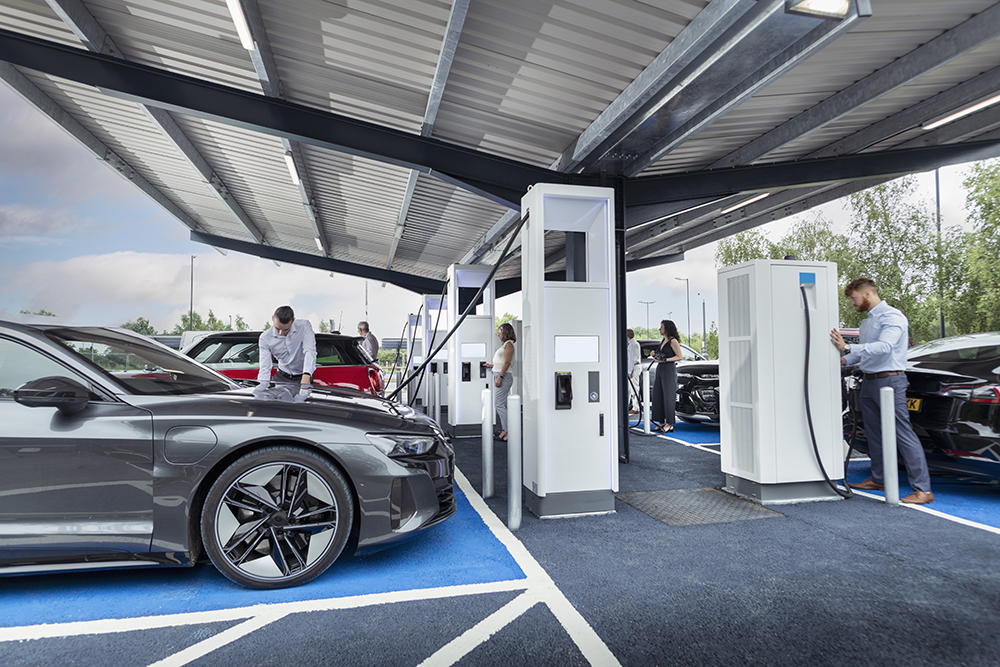North Carolina State University (NCSU) researchers have developed a medium-voltage fast charger (MVFC) that they say offers 60% less power loss than conventional systems, is only a tenth the size, and delivers similar charging times. Armed with this technology, the team is working towards a multi-vehicle charger capable of even faster charging.
Current 50 kW chargers require a heavy distribution transformer (1,000 kg) that steps down medium-voltage line current to 480 V. This is then rectified to DC with a separate charger unit (200 to 600 kg). Adding insult to injury, these loads must be installed on large concrete slabs. NCSU’s unit weighs approximately 100 kg in total, less than your average football player. This was made possible with the use of wide-bandgap semiconductor devices which aid in directly converting medium-voltage utility line current to EV-friendly DC.
Weight aside, current 50 kW chargers are, at best, 93% efficient. The NCSU MVFC is tested to be at least 97.5% efficient, a 4.5% bump. The next step is a multi-vehicle charger with power outputs of 350 kW per vehicle. To make this multi-port system possible, the team will connect a utility line to a solid-state transformer (SST) which will feed a local DC microgrid that can power several cars at a time. These higher power outputs theoretically translate to charging rates seven times higher than before (per car).
“Our 50 kW MVFC weighs only around 100 kilograms and can be wall or pole-mounted,” says NCSU Associate Professor Srdjan Lukic. “The MVFC does the work of both the transformer and the fast charger, taking power directly from a medium-voltage utility line and converting it for use in an electric vehicle battery.”
“This new approach offers four times more power from the same system footprint, reducing the system installation costs at the same time,” says the similarly named NCSU Professor Srdjan Srdic.
Source: NCSU










































































































